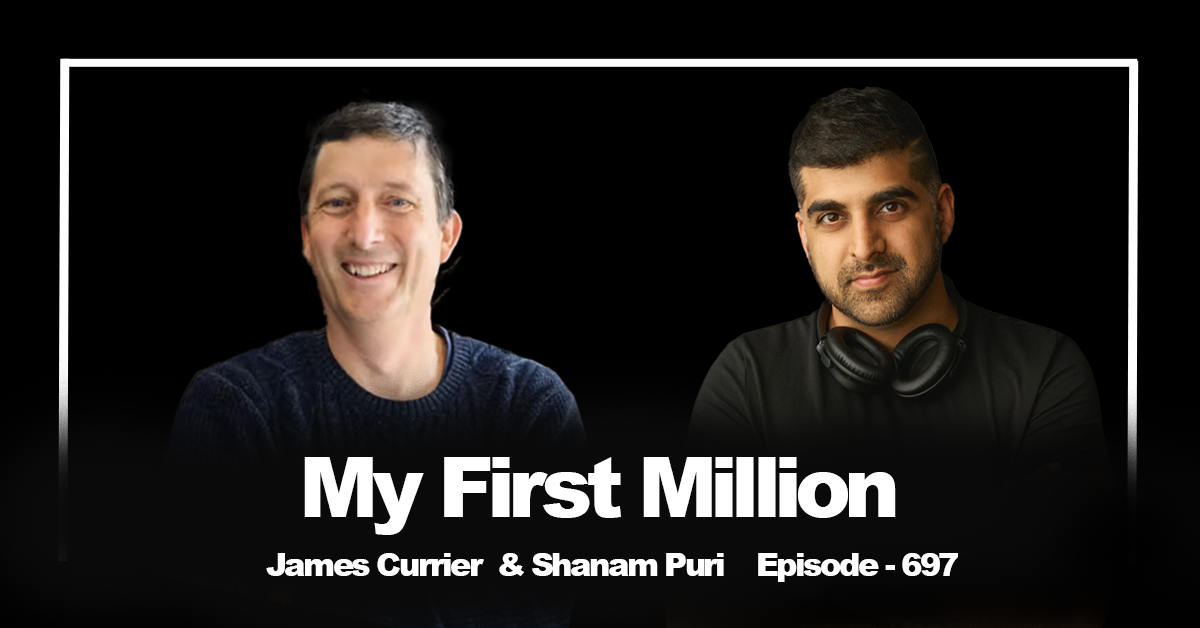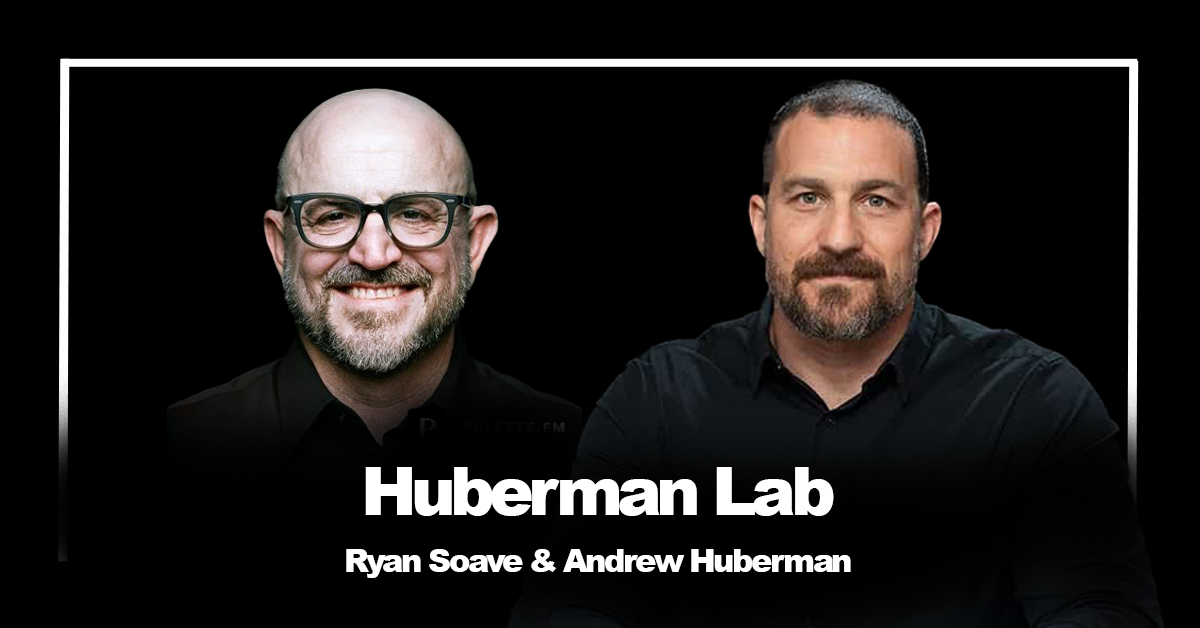Hey everyone,
This week on the Knowledge Project, Shane Parrish sits down with Brett Taylor, co-founder and CEO of the AI startup Sierra, and a tech leader with a remarkable journey that includes co-creating Google Maps, founding FriendFeed (acquired by Facebook), co-founding Quip (acquired by Salesforce), and serving as both CTO of Facebook and co-CEO of Salesforce.
This conversation offers a rare inside look at the realities of building, scaling, and integrating technology companies. Brett shares the real story behind Google Maps’ creation, the challenges and nuances of being a founder within a larger corporation after an acquisition, and his deeply informed perspective on the current AI revolution. They discuss the future of software engineering, the ingredients needed for AGI (Artificial General Intelligence), the role of foundation vs. frontier models, and the importance of first-principles thinking in navigating rapid technological change.
Brett also opens up about the “identity shift” founders face post-acquisition, the keys to making acquisitions successful (hint: it involves empathy and tackling hard conversations early), and the essential traits of enduring leadership.
Here are the detailed key insights and takeaways:
1. Founder Identity & Post-Acquisition Life
- More Than Just Business: Being a founder is deeply tied to personal identity. Transitioning to an employee role post-acquisition requires a conscious identity shift to fully embrace the new structure and find value. Many founders struggle with this.
- Empathy for Acquired Teams: Employees of acquired companies didn’t choose the new path. Integrating them requires empathy, realism, and addressing the “boring but important” details (like team structure, reporting lines, control) early on, not just focusing on the exciting “synergies.”
- Learning as an Advisor: Serving on boards (like OpenAI and previously Shopify) provides a different vantage point, allowing leaders to learn how other companies operate and add value without direct execution. Brett believes this makes him a better leader.
- Founder-Led Advantage: Brett believes founder-led companies often drive better outcomes, as founders have permission (from stakeholders and themselves) to make bolder, more disruptive decisions than professional managers might.
2. The AI Revolution: Insights from the Inside
- “Holy Sh*t” Moments: Brett’s first AI “aha” moment was seeing Dolly generate the “avocado chair” image in 2022, resetting his expectations of what computers could do creatively. The second was the rapid emergence and capability of ChatGPT just months later.
- Software Engineering Transformation: AI is profoundly changing software development. The focus shifts from manually writing every line of code to operating and guiding AI code-generation tools. This requires different skills: strong judgment, architectural thinking, and the ability to verify AI output.
- Future Programming Systems: Brett argues current programming languages (like Python) were designed for human authors. Future systems should be designed for AI generation, potentially incorporating formal verification and robust testing natively to handle the volume and complexity of AI-generated code safely. Rust is pointed to as a step in this direction (designed for safety).
- Ingredients for AGI: Brett identifies the key inputs/bottlenecks as Data (availability, quality, simulation/synthetic data), Compute (hardware, cost, energy), and Algorithms (reasoning models, transformers, future breakthroughs). Progress requires advances in all three.
- Foundation vs. Frontier Models: Most companies should leverage existing “foundation models” (like those from OpenAI, Google, Meta) rather than trying to build their own from scratch, similar to using cloud infrastructure instead of building data centers. “Frontier models” are the cutting-edge ones pushing the boundaries towards AGI, requiring immense resources.
- Democratizing Expertise: AI has the potential to democratize access to specialized knowledge and services (like tutoring, legal help, medical information), making expertise less exclusive.
3. Building Enduring Companies in the Age of AI
- First Principles Thinking: In a rapidly changing landscape like AI, relying on past experience (“that’s how we did it before”) is risky. Leaders need to constantly return to first principles to make sound strategic decisions based on current realities.
- Beyond Code Generation: While AI excels at generating code, the human roles of judgment, architecture, defining value, and ensuring safety remain critical. The most valuable engineers will be operators and architects of AI systems.
- New Business Models: Sierra (Brett’s current company) focuses on building branded, conversational AI agents for companies, moving beyond simple chatbots to handle complex customer interactions and tasks. Their pricing model is outcome-based (charging for results), reflecting a shift enabled by AI’s task-completion capabilities.
- Culture of Adaptation: Enduring companies need cultures that can evolve rapidly to meet changing demands. Bureaucracy and inaccurate internal narratives (“reality distortion fields”) are major threats that prevent companies from adapting quickly enough. Staying close to the customer voice is crucial.
4. The Google Maps Origin Story
- The Precursor: Google Local (a yellow pages search engine) existed but felt clunky. Larry Page pushed for deeper investment in maps.
- The Acquisition: Google acquired Where 2 Technologies, a small team led by Lars and Jens Rasmussen (who had built a sophisticated Windows desktop mapping app).
- The Rewrite: The initial integration was slow and XML-heavy. Brett, bothered by the clunkiness, rewrote much of the front-end code over a weekend, leveraging his knowledge of the previous system and making it significantly faster and more interactive (introducing the draggable map). This technical leap, born from a desire for better craft, was key to its success.
5. Leadership & Success
- Outcomes Over Process: Avoid “DMV-like” cultures where process trumps outcomes. Great leaders focus on achieving results and empower their teams accordingly.
- Free Market Doesn’t Lie: Ultimately, customer obsession and delivering real value are what matter for enduring success.
- What is Success? For Brett, it’s having a happy, healthy family and being able to work with his co-founder Clay for the rest of his life, building an enduring company (Sierra).
Final Thought:
Brett Taylor offers a unique blend of deep technical understanding and hard-won leadership experience from the highest levels of the tech industry. His insights into the founder’s journey, navigating acquisitions, and the fundamental shifts being driven by AI provide a valuable roadmap for anyone trying to build, lead, or simply understand the future of technology and business.
Find Brett Taylor: On X @btaylor, On Linkedin- https://www.linkedin.com/in/brettaylor/
Until next time,
The Podcast Notes Team





